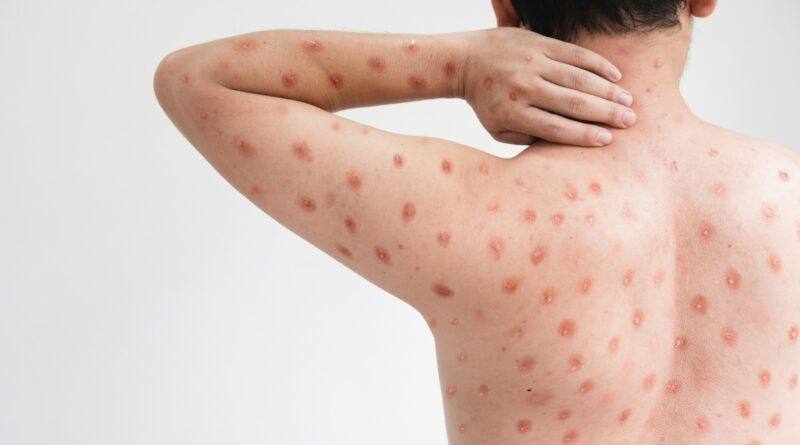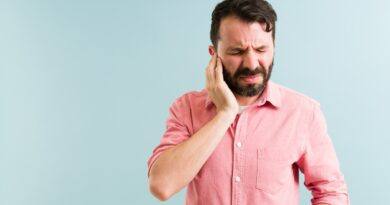Monkeypox: All You Need To Know About It Now
Symptoms of Monkeypox: Dos and don’ts if you have been diagnosed with this viral disease
The monkeypox virus is the cause of monkeypox, a viral disease. By adhering to these guidelines, you can safeguard yourself and others from this infectious disease and maintain your mental and physical health.
Monkeypox is a viral disease that is caused by the monkeypox virus, a member of the orthopoxvirus genus that also includes smallpox. A distinctive rash that progresses to pus-filled blisters, as well as fever, headache, muscle pains, and swollen lymph nodes, are its defining symptoms. The virus is predominantly transmitted to humans through close contact with an infected person or through contact with infected animals, particularly rodents. Although monkeypox is generally less severe than smallpox, it can still result in severe complications in certain instances. The disease has been documented globally, despite being endemic in specific regions of Central and West Africa. Dr. Srinivas Rao, a senior consultant at I.R.S Global Healthcare in Kolkata, recommends the following dos and don’ts for individuals who have been diagnosed with monkeypox.
Do’s:
- To prevent the transmission of the virus, it is recommended that you remain in a separate room and refrain from interacting with others, including canines.
- Seek medical attention: Consult with a healthcare provider to obtain appropriate advice regarding treatment and care.
- Observe proper hygiene principles: It is important to frequently wash your hands with detergent and water or use an alcohol-based sanitiser, particularly after touching lesions.
- Bandages or clothing should be employed to conceal any lesions or symptoms in order to mitigate the risk of transmission.
- Dispose of disposable items properly after use, including utensils, tissues, and gloves.
- Clean and disinfect surfaces: Consistently clean and disinfect surfaces, linens, and other objects that you come into contact with.
- Hydrate and recuperate: Ensure that you receive an adequate amount of sleep and consume fluids to assist your immune system in its recovery.
- Notify your closest associates: Ensure that individuals with whom you have been in close contact recently are informed so that they can monitor for symptoms.
- Track symptoms: Inform your healthcare provider of any modifications to your symptoms.
- Practice respiratory hygiene: When coughing or sneezing, cover your mouth and nose and wear a mask if you must be in close proximity to others.
Don’ts:
- Do not disregard symptoms: Do not disregard symptoms such as enlarged lymph nodes, fever, or a rash. Early diagnosis is crucial.
- Do not engage in intimate contact: Until you have completely recovered and have been cleared by a healthcare provider, refrain from engaging in physical contact, including sexual activity.
- Refrain from touching lesions: To prevent the transmission of the virus, refrain from scratching or handling the rash or lesions.
- Refrain from disclosing personal items: It is advisable to refrain from sharing items such as utensils, towels, bedding, or apparel, as the virus can be transmitted through contaminated objects.
- Refrain from travelling: Remain at home and refrain from travelling until your healthcare provider confirms that you are no longer contagious.
- Refrain from employing treatments that have not been authorised: Prevent the use of unprescribed medications or household remedies without consulting a healthcare provider.
- Do not postpone isolation: Isolate yourself as soon as you suspect you may have monkeypox, even before you receive a formal diagnosis.
- Do not disregard mental health: Do not disregard anxiety and tension. If necessary, seek assistance from mental health professionals.
- Refrain from visiting public areas: Refrain from visiting work, school, or other public locations where you may be exposed to others.
- Do not panic: Maintain awareness and adhere to the guidance of your healthcare provider, but refrain from incurring unnecessary anxiety. Although monkeypox is typically benign, it is treatable.
According to a PTI report that cites official sources, the union health ministry of India has directed all airports and land terminals on the borders with Bangladesh and Pakistan to be on the lookout for international passengers exhibiting symptoms of Mpox.
Mpox-designated hospitals
The ministry has designated three Centre-run institutions in Delhi—Ram Manohar Lohia Hospital, Safdarjung Hospital, and Lady Hardinge Medical College—as critical centres for the isolation, management, and treatment of Mpox patients.
Additionally, state administrations have been directed to identify and designate comparable hospitals in their respective regions.
The health ministry has also instructed officials to enhance surveillance efforts and implement effective measures to facilitate the rapid detection of Mpox cases. The network of testing laboratories has been advised to be prepared for early diagnosis, with 32 laboratories across the country presently equipped to test for Mpox.





I was recommended this website by my cousin I am not sure whether this post is written by him as nobody else know such detailed about my trouble You are amazing Thanks
I just could not leave your web site before suggesting that I really enjoyed the standard information a person supply to your visitors Is gonna be again steadily in order to check up on new posts